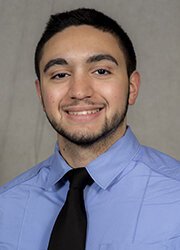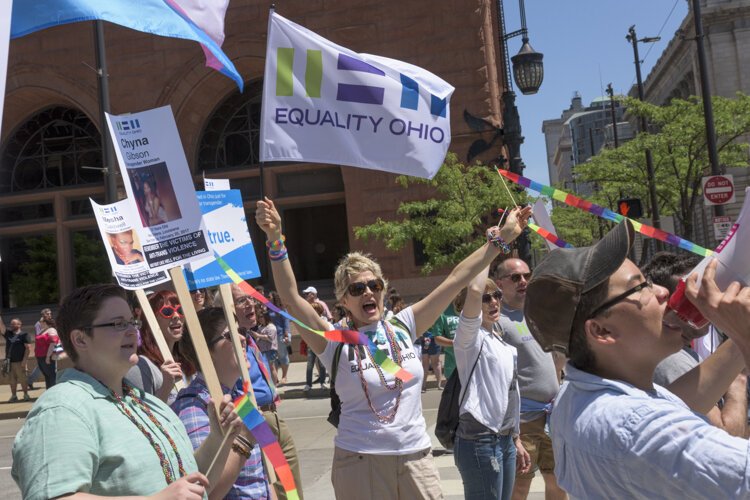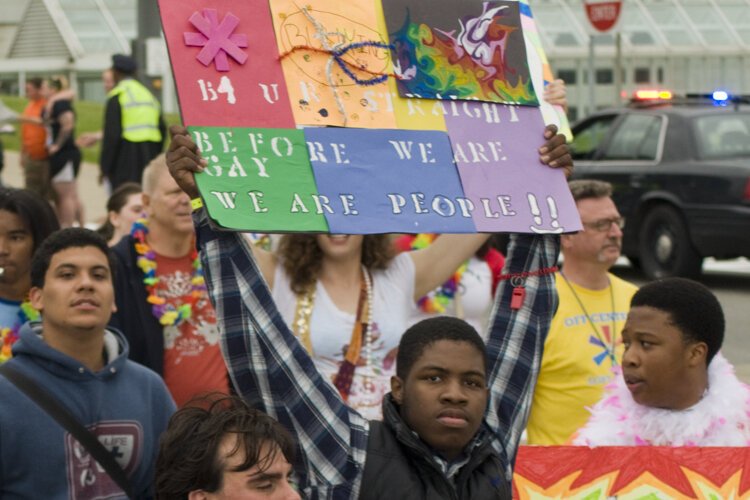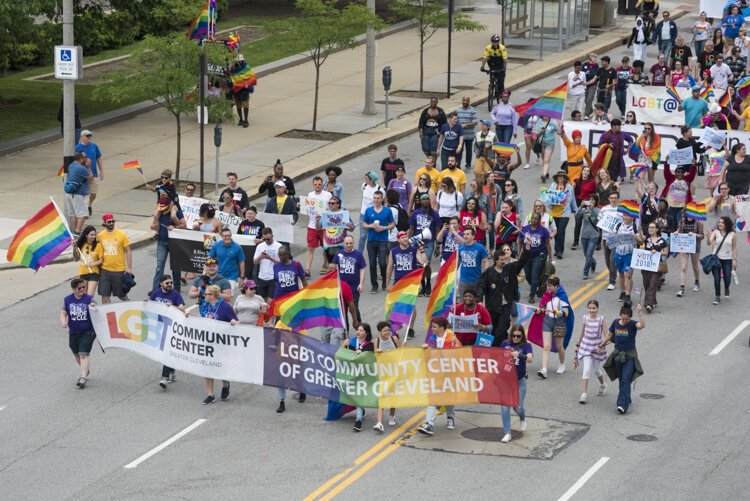County Human Rights Commission now taking LGBTQ discrimination complaints
Many members of Northeast Ohio’s LGBTQ community regularly experience discrimination—subject to verbal and physical harassment, marginalized in their own jobs, and discriminated against when trying to buy or rent a home.
“LGBTQ people are discriminated against everywhere in Ohio—Cleveland and Northeast Ohio included,” says Grant Stancliff, communications director for Equality Ohio. “The Ohio legislature has repeatedly refused to act on the Ohio Fairness Act, which would add LGBTQ people to the laws that make discrimination illegal in the state. Even after the Supreme Court [passed Obergefell v. Hodges, requiring U.S. states to recognize all same-sex marriages as valid], we're left scratching our heads wondering just what, if anything, this legislature is waiting for.”
For the LGBTQ community in Cuyahoga County, the waiting—at least at a local level—is over.
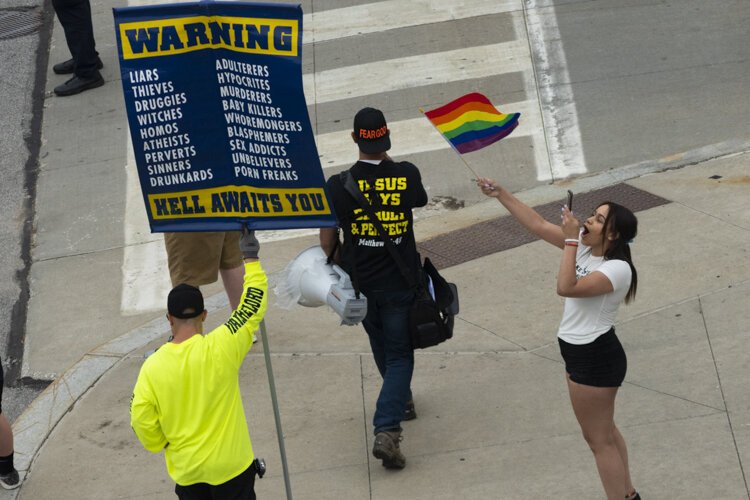 Last week, the Cuyahoga County Human Rights Commission (CCHRC) announced that it is now accepting and enforcing registered discrimination complaints under the Cuyahoga County Anti-Discrimination Ordinance, which prohibits discrimination based on sexual orientation, gender, identity, or expression.
Last week, the Cuyahoga County Human Rights Commission (CCHRC) announced that it is now accepting and enforcing registered discrimination complaints under the Cuyahoga County Anti-Discrimination Ordinance, which prohibits discrimination based on sexual orientation, gender, identity, or expression.
“It is important to identify and process these complaints as LGBTQ members are denied basic protections under state and federal law and experience high rates of discrimination,” says Awatef Assad, Cuyahoga County attorney and risk manager. “When everyone is treated equally, our community thrives.”
In fact, according to a 2017 Discrimination in America study conducted by National Public Radio (NPR), the Robert Wood Johnson Foundation, and Harvard’s T.H. Chan School of Public Health, one in five LGBTQ individuals have been discriminated against due to their sexuality or gender identity in areas of housing, applying for a job, and having equal pay or being considered for a promotion at work.
Stancliff says the enforcement measures provide some relief. “I am so thankful for communities in Cuyahoga [that] want to protect their families and neighbors from prejudice,” he says. “Because with the lack of lawmaking in Columbus, we'd be left out in the cold.”
In September 2018, Cuyahoga County passed the Anti-Discrimination Ordinance as the CCHRC was formed to break down barriers and promote equality throughout Northeast Ohio— ensuring that all people in the county have equal access and opportunity to employment, housing, and public accommodations and providing citizens with civil rights protections against discriminatory practices.
Awatef says that the Supreme Court case was a major inspiration in starting the commission.
Commission members Kimberly Barnett Mills, Timothy Downing, and Todd Masuda are tasked with using outreach, education, and training to advocate for diversity and inclusion in Cuyahoga County.
“The establishment of the Human Rights Commission further solidifies our work to make sure that everyone is treated with the dignity and respect they deserve—regardless of their gender, sexual orientation or gender identity,” said County Executive Armond Budish in a statement. “I look forward to seeing the work our commissioners do to help improve the quality of life of Cuyahoga County residents.”
The commission was initially slated to begin accepting complaints this past April, but the process was put on hold because of the coronavirus.
While there have not yet been any complaints filed, the process is designed to be fluid and detailed for the entire county when complaints do come in.
“Without local protections like those in Cuyahoga County LGBTQ people would have no recourse for discrimination,” says Stancliff. “Even with them—and we have been working hard for over a decade—only about a quarter of Ohioans live in places with these protections.”
If complaints are filed through city government agencies, those municipalities have the option to turn the complaints over to the CCHRC for investigation.
Within five days of a complaint reaching the CCHRC, the complainant will be notified if the commission has legal jurisdiction to handle the case.
If the HRCC does have jurisdiction, then all parties involved will have 30 days to decide whether mediation to settle the conflict, without having to go to an administrative hearing, is possible.
Through the commission’s partnership with the Cleveland Metropolitan Bar Association (CMBA) free mediation services are offered to both parties. If a decision is reached in mediation, then the case is officially closed.
“The mediation process offers an opportunity for the parties to streamline and resolve their own disputes and avoid lengthy administrative proceedings,” explains Assad. “We are excited to have the CMBA’s involvement and to see the impact that these confidential mediation services will have on the process and our community.”
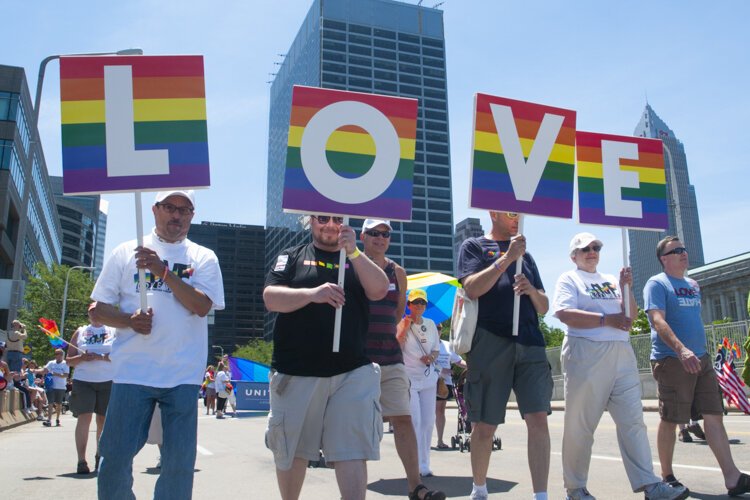 If an individual or organization is found to have violated the anti-discrimination ordinance, the CCHRC can impose a civil administrative penalty. The first offense warrants payment up to $1,000, the second up to $2,500, and the third as high as $5,000. Payment of attorney’s fees and costs may also be awarded.
If an individual or organization is found to have violated the anti-discrimination ordinance, the CCHRC can impose a civil administrative penalty. The first offense warrants payment up to $1,000, the second up to $2,500, and the third as high as $5,000. Payment of attorney’s fees and costs may also be awarded.
All penalties collected will be put back into financing the costs and implementation of the anti-discrimination ordinance.
When it came to draft this historic legislation, Assad played an influential role. “I drew on the experience from experts on issues affecting the LGBTQ community—and reviewed anti-discrimination laws from across the country,” she says. “Our ordinance incorporates best practices from these resources—one being the creation and establishment of an independent Human Rights Commission.”
For more information on the different types of discrimination the CCHRC reviews, as well as how to issue and respond to a complaint, click here.
